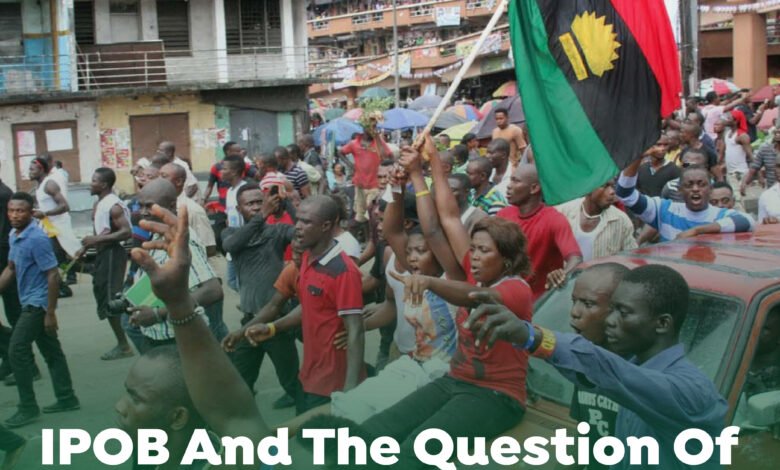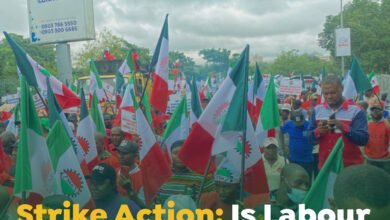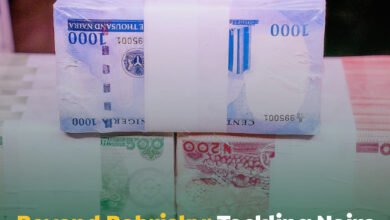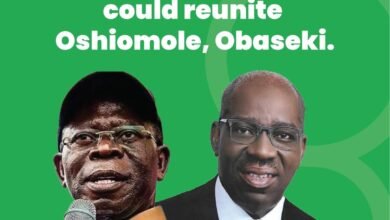
The question of self-determination has always been on the front burner every 30th of May in the south-eastern part of Nigeria, since Nnamdi Kanu, the acclaimed leader of IPOB, declared it some years ago.
On May 30, 2024, the Indigenous People of Biafra ordered a complete lockdown in the region for the remembrance of ‘Biafrans’ who fought during the Biafra and Nigeria civil war, while the rest of the country went about their normal business activities.
For 24 hours, the IPOB order grounded vehicular and human movements, as well as socio-economic activities, to a screeching halt. While the governors of Enugu, Imo, and Anambra issued statements against the sit-at-home order, reports from the region show that people largely stayed inside for fear of attacks, thereby paralyzing commercial activities, including the ongoing WAEC examinations.
“The Enugu state government notes with deep concern the statement credited to the Indigenous People of Biafra directed the West African Examination Council to postpone the General Mathematics (Theory and Objectives) examinations scheduled for Thursday, May 30, 2024, which the IPOB had designated ‘Biafra Heroes Day”, Enugu Commissioner for Information, Aka Eze Aka stated, “This is unacceptable to us, not only because of the well-known position of the Enugu State Government on illegal sit-at-home orders, which have dealt a great blow on the socio-economic life and fortunes of the South East region but also because of the far-reaching consequences of a whole generation of Enugu children failing to sit for a fundamental subject such as mathematics in one year”.
The state further requested that workers be in their duty posts on the above date, as failure will result in summary dismissal from service by the enabling provisions of the Public Services Rules. Similarly, the Imo State Police Command equally deployed personnel across the 27 local government areas to maintain peace and security. SP Henry Okoye, Police Public Relations Officer, stated that the command, in collaboration with other security agencies, has implemented adequate security measures to evade any threat of attack by any insurgent group. In Anambra State, the situation was similar. But states like Abia noted that they are not interested in confronting sit-at-home promoters.
“We are not interested in an unnecessary confrontation with the people who are appealing for a sit-at-home in honor of their dead ones. “They have every right to mourn their own, especially considering the history of that war,” Ferdinand Ekeoma, special adviser on media and publicity to Governor Alex Otti, clarified in a statement.
‘One Region, different Orders’
Declared in 2021 by Nnamdi Kanu and other IPOB leaders, the sit-at-home order has sparked debates among Nigerians, who contend that the group’s objective is undermining the legitimate rights of other Nigerians in the region. Some Igbo leaders have condemned the previous sit-at-home, but it also garnered the support and endorsement of many, leading to confusion, division, and apprehension among the people. However, the death of security agents during the last sit-at-home has changed the discourse from one of peaceful order enforcement to one of attacks and killings of security agents.
‘Don’t frustrate the people you want to liberate’
Analysts believe that the cost of the sit-at-home order has been largely unreported noting that a more adaptive tactic must be adopted by the group if it must draw the attention of the government to its plights. “You may defy the established order for a while but not for all the time”, Uche Peter noted, “You still have to find a way to leverage your soft power and influence and support to tilt the game of democratic governance to your favour otherwise you will continue to frustrate the same people you want to liberate”.
Many have also compared the swift response of the southwest governors to the purported invasion of the state secretariat in Ibadan by some members of Yoruba Nation agitators to mean the growing influence and interference of IPOB and Eastern Nigeria Security Network enjoyed the patronage of some powerful people. They noted that without the overt and covert support of some influential personalities in the region, it would be difficult for the group to stand shoulder-to-shoulder with established authority.
“You cannot compare the struggle for a separate Yoruba nation with IPOB”, Kunle Adewale, a public affairs analyst noted “In the case of IPOB, a brutal and bloody war has been fought accompanied by death and destruction but no war has been fought by the Yoruba to press home their demands”. Others have equally contended that it is time for the government to address the question of marginalization that has fueled most IPOB activities if it is committed to restoring calm and normalcy to the region that is renowned for innovation and enterprise.





